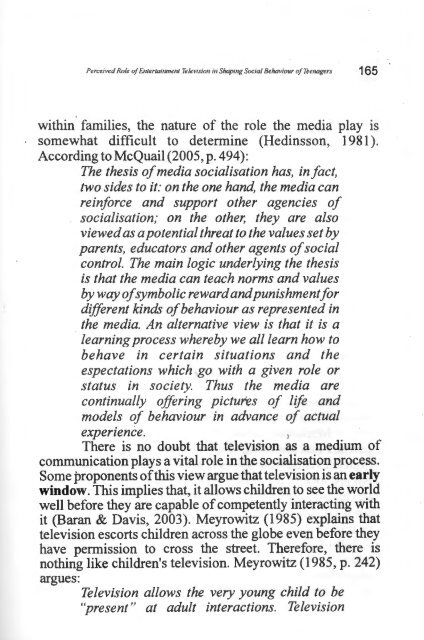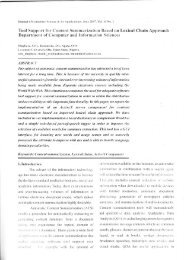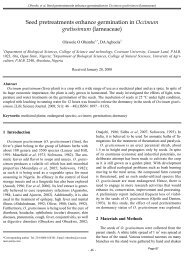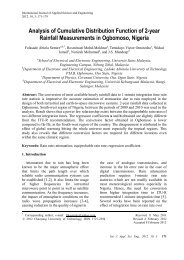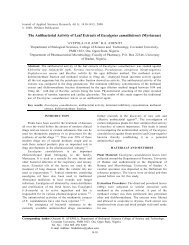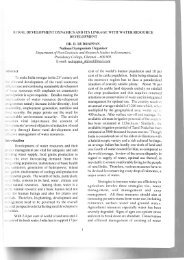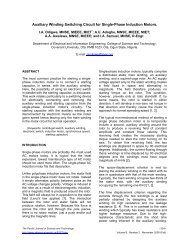Download (5Mb) - Covenant University Repository
Download (5Mb) - Covenant University Repository
Download (5Mb) - Covenant University Repository
You also want an ePaper? Increase the reach of your titles
YUMPU automatically turns print PDFs into web optimized ePapers that Google loves.
Perceived Role of li.llfertuinment 1Cievi.\·ion in Shaping Social Behaviour lif 1C.magers 165<br />
within families, the nature of the role the media play is<br />
somewhat difficult to determine (Hedinsson, 1981 ).<br />
According to McQuail (2005, p. 494):<br />
The thesis of media socialisation has, in fact,<br />
two sides to it: on the one hand, the media can<br />
reinforce and support other agencies of<br />
socialisation; on the other, they are also<br />
viewed as a potential threat to the values set by<br />
parents, educators and other agents of social<br />
control. The main logic underlying the thesis<br />
is that the media can teach norms and values<br />
by way of symbolic reward and punishment for<br />
different kinds of behaviour as represented in<br />
the media. An alternative view is that it is a<br />
learning process whereby we all/earn how to<br />
behave in certain situations and the<br />
espectations which go with a given role or<br />
status in society. Thus the media are<br />
continually offering pictures of life and<br />
models of behaviour in advance of actual<br />
experience. :<br />
There is no doubt that television as a medium of<br />
communication plays a vital role in the socialisation process.<br />
Some proponents ofthis view argue that television is an early<br />
window. This implies that, it allows children to see the world<br />
well before they are capable of competently interacting with<br />
it (Baran & Davis, 2003). Meyrowitz (1985) explains that<br />
television escorts children across the globe even before they<br />
have permission to cross the street. Therefore, there is<br />
nothing like children's television. Meyrowitz (1985, p. 242)<br />
argues:<br />
Television allows the very young child to be<br />
"present" at adult interactions. Television


